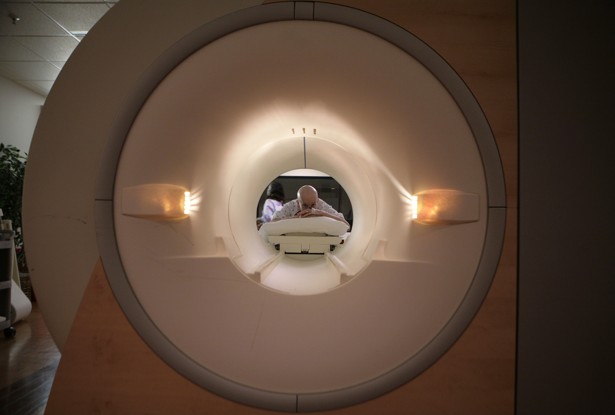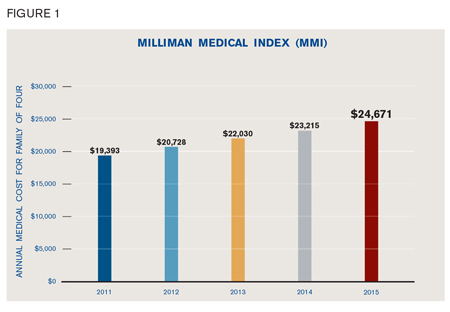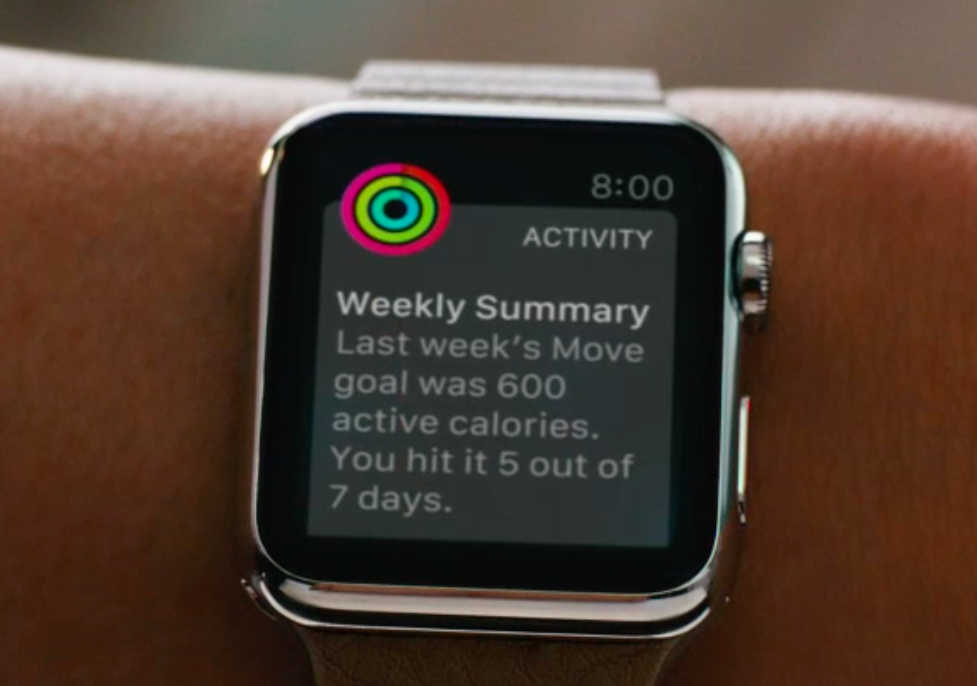- Cost Reduction
- Healthy Outcomes/Wellness
- Medical Billing Errors/Fraud
- Accountable Care/Health Systems
Best Practices/Cost Reduction

U.S. Emergency-Room Visits Keep Climbing
Did you know that emergency room visits continue to climb under the Affordable Care Act? According to a study by Truven Health Analytics of 6.5 million emergency room claims, only 29% of patients required immediate attention. Many employers are educating their employees that to rein in costs, urgent care and other alternatives may be more timely and cost effective.Read More

How Fitbit and IBM Watson are transferring the power of healthcare data from one hand to another
Did you know that a recent announcement by wearable device pioneer Fitbit and IBM Watson’s healthcare unit will rapidly democratize access to personal health data, as well as access to complex computational capability and placing it, literally, in people’s hands? Separately, IBM Watson Healthcare announced a major push into the healthcare analytics space through strategic partnerships with the Mayo Clinic and Epic, a provider of Electronic Health Record (EHR) systems.
Read More

Why Do Other Rich Nations Spend So Much Less on Healthcare?
Did you know that the United States spends 18% of its GNP on healthcare, more than 50% higher than the Netherlands, who is the second highest spender? Why does the United States spend so much more? The biggest reason is that U.S. healthcare delivers a more expensive mix of services. For example, a much larger proportion of physician visits in the U.S. are to specialists who get higher fees and usually order more high-tech diagnostic and therapeutic procedures than primary care physicians.Read More

Cut Health Coverage Or Send Obamacare Cadillac Tax To Junkyard?
Did you know that a survey by the International Foundation of Employee Benefit Plans reveals that 62% of companies facing a 40% Cadillac tax hit in 2018 are already changing their coverage to avoid it? Conversely, only 2.5 percent of companies say they will pay it. How do you avoid it? Change to higher deductible plans, reduce benefits, shift more costs to employees, or even drop high-cost plans altogether.Read More

2015 Milliman Medical Index
Did you know that in 2015, the cost of healthcare for a typical American family of four covered by an average employer-sponsored preferred provider organization (PPO) plan is $24,671 according to the Milliman Medical Index (MMI)? The cost for this family has nearly tripled since Milliman began tracking this information in 2001. This creates a risk of triggering the “Cadillac tax” in 2018 if the plan is provided by a smaller employer and if trends exceed recent levels.Read More

Can The Apple Watch Really Keep The Doctor Away?
Did you know that the Apple Watch, while still early in its development, has the capacity to become the first commercial data-gathering and synthesis system for personal health metrics? With the availability of specialized biosensors and real-time access to medical records, it could deliver event or monitor-driven, ultra-personalized medical info to you, and evaluate and adjust treatment to meet changing circumstances, or to emergency contacts if you are incapacitated. Read More
Will Narrow Networks Strike Out On The Health Care Exchanges?
Did you know that narrow networks, while limiting your choice in chosen medical providers, typically offer significantly reduced premiums? Narrowing the choice of in-network doctors and hospitals is designed to help insurance companies control costs and manage care. Typically a narrow network may only include 30-70% of the available providers in the area. Read More

2014 Health Care Changes Ahead Survey Report
Did you know that per Towers Watson, 81% of companies plan to make moderate to significant changes to health benefit programs for full-time active workers in 2015? Additionally, the cost per employee for healthcare in 2015 is $13,037. This consists of $10,233 paid for by the employer and $2,804 borne by the employee. The study consisted of 379 midsize to large corporations.Read More

Drugs for this disease are now a $100 billion market
Did you know that the world spent an all-time high of $100 billion on cancer medicines in 2014, up 33 percent from $75 billion just five years ago? The spending is concentrated in only a handful of nations. The U.S. and the five largest European countries — Britain, France, Germany, Italy and Spain — make up two-thirds of global spending on these medicines. The U.S. spent $42.5 billion on cancer drugs in 2014, which accounted for 11.3 percent of the nation’s total spending on all drugs. Read More

Obamacare brings $273 billion bonanza for paper pushers
Did you know that a study by Health Affairs found that administration costs for the Obamacare legislation will cost roughly $273.6 billion, or roughly 22.5 percent, of the total estimated $2.76 trillion cost of the Affordable Care Act through 2022 will go to overhead costs?Read More

Surgery costs vary wildly — even in same area
Did you know that there can be significant unexplained variation in the cost of the exact same procedure across your patient population? For example, a recent study identified that Blue Cross Blue Shield paid $11,317 for total knee replacements in Montgomery, AL, but the very same procedure cost the payer $69,654 in NYC. Even more startling were differences within the same metropolitan market, where a total hip replacement in Boston ranged from $17,910 to almost $74,000 —- a 313% difference.Read More

Big Pharma’s Favorite Prescription: Higher Prices
Did you know that certain prescription drugs have increased in cost at rates up to nearly 850% since 2007 versus an increase in the Consumer Price Index (CPI) of 12% during that period? Examples include Avonex (+147%), Gleevec (+158%), Viagra (+159%), EpiPen (+222%), Humulin R U-500 (+354%) and Xyrem (+841%). There are 15 cancer drugs introduced in the past 15 years that cost patients more than $10,000 per month.Read More

Employers Plan Strategic Changes to Health Benefits
Did you know that the majority of midsize and large U.S. employers (84%) expect to make changes to their employee health benefits program over the next 3 years, according to nw research from consultancy Towers Watson? Two-thirds are planning to use claims and other data to evaluate plan performance and employee behavior changes in lifestyle and health management. The use of “centers of excellence” and “narrow networks” is expected to triple.Read More

Private Health Insurance Exchanges Unleash ‘Transformational Change’
Did you know that despite the negative attention of public healthcare exchanges, private health insurance exchanges are quietly building steam as new tools to engage employees and manage health care benefits more effectively? The potential benefits of private exchanges are relatively obvious: reducing trend for health care costs, reducing administrative burdens in an increasingly complex regulatory environment, and expanding the number of benefit choices available to employees. Read More
Coverage for Spouses and Dependents Scaled Back
Did you know that to control rising health care costs and minimize triggering the Affordable Care Act’s 2018 excise tax, a growing number of employers will significantly reduce the subsidies paid to support spousal and dependent coverage? As reported by the Society for Human Resurce Management (SHRM), 58% of companies have completed an audit of covered dependents to verify eligibility and 52% are considering unitized pricing—where employees pay per person, and not individual versus family.Read More

Do Workplace Wellness Programs Work? Usually Not
Did you know that over 50% of large firms (defined as over 200 employees) offer incentives for employees to complete health risk assessments, intended to identify health issues? Medium to large employers spent an average of $521 per employee on wellness programs in 2013, double the amount spent 5 years ago. Per the NY Times, rigorous research does not support that wellness programs save money, and with few exceptions, do not appreciably improve health.Read More

Only 251 U.S. hospitals receive 5-star rating on patient satisfaction
Did you know that only 251 (7.1%) of 3,553 hospitals nationwide received CMS 5 star rating? These ratings are based on the patient experience, and include such factors as the responsiveness of hospital staff, the quality of care transitions, cleanliness and how well information is communicated to patients.Read More

Boeing negotiates directly with more health systems
Airplane manufacturer Boeing Co. will soon offer more employees the option of health benefits negotiated directly with local health systems. The employer, skilled in the art of negotiations, first used the strategy last year in Seattle to better control healthcare costs.
Boeing added direct contracts with Roper St. Francis Health Alliance in Charleston, S.C., one major location for Boeing’s commercial airline business, and with St. Louis-based Mercy. Boeing’s defense, space and security business operates in 10 U.S. cities, including St. Louis.
(more…)

“Dark Secrets” of Healthcare Costing
This is definitely one of those “dark secrets” of healthcare costing, that the amount billed for the very same surgery varies widely across providers, with little correlation to the medical value received by the patient or the quality of care. While the cost of a total knee replacement averaged about $31,000 in 64 markets where Blue Cross Blue Shield analyzed its claims data, the cost in Dallas ranged from $16,772 to $61,585. This represents a four-fold difference for the same procedure in the very same metropolitan area.
(more…)
Healthy Outcomes/Wellness

Medicare’s Readmissions-Reduction Program — A Positive Alternative
Did you know that hospital “readmissions” is considered a costly event in terms of both financial impact and negative health outcomes for affected patients? While some readmissions are “planned” as part of a care treatment, those that are not “planned” are to be coded on the medical record to enable tracking of the event for future improvement. These “readmissions” are indicated by the use of “Modifier 78” when submitted for claim reimbursement.Read More

Medicare Fines 2,610 Hospitals In Third Round Of Readmission Penalties
Did you know that Medicare is stepping up its efforts to reduce hospital readmissions? Last year, nearly 18 percent of Medicare patients (roughly 2 million patients) who had been hospitalized were readmitted within a month. This costs Medicare (and taxpayers) nearly $26 billion per year, of which $17 billion is considered avoidable. Fines over the next twelve months expect to reach $428 million, including a maximum penalty of 3% of reimbursements.Read More
Modern Healthcare website checking the percentage penalty that Medicare is assessing each hospital for readmission and other issues
Did you know that Modern Healthcare offers a site to check the percentage penalty that Medicare is assessing each hospital for readmission and other issues? Other ratings sites for medical providers include: Vitals.com, Healthgrades.com, Leapfrog.com, Zocdoc.com and Healthcare.gov.Read More

U.S. Healthcare Ranked Dead Last Compared To 10 Other Countries
Did you know that the United States ranked “dead last” among 10 developed countries in terms of delivered care by the Commonwealth Fund? Countries were ranked on the basis of quality, access to care, efficiency, equity and healthy lives.It’s fairly well accepted that the U.S. is the most expensive healthcare system in the world, but many continue to falsely assume that we pay more for healthcare because we achieve better health outcomes. The evidence, however, clearly doesn’t support that view.Read More
Patients Can Do More to Control Chronic Conditions
Did you know that disease management can help patients with chronic conditions live longer, healthier lives? For the millions of Americans over 50 who have already been diagnosed with chronic ailments like kidney disease, diabetes, heart disease, rheumatoid arthritis and chronic obstructive pulmonary disease, careful management can’t turn back the clock, but it can buy time. It takes adherence to medications, sticking to recommended diet and exercise plans, and getting regular checkups. Read More

Overkill
Did you know that Walmart has launched a program for employees undergoing spine, heart or transplant procedures? Employees would have zero out-of-pocket costs if their treatment was performed at one of 6 “centers of excellence” nationally. Interestingly, per Sally Wellborn, senior vice president for benefits at Walmart, nearly thirty percent of the employees slated for spine surgery are told the treatment they seek is inappropriate.Read More

Seniors Flock To Star-Rated Medicare Plans Under ACA Rollout
Did you know that more than half of seniors enrolled in Medicare Advantage plans are now enrolled in plans with ratings of four or more stars on a five-star scale, a ranking system created under the health law to guide seniors to cost-effective and higher quality benefits? Plans are rated on such measures like call waiting times as well as how well they encourage preventive care.Read More
Medical Billing Errors/Fraud

Medicare’s Readmissions-Reduction Program — A Positive Alternative
Did you know that hospital “readmissions” is considered a costly event in terms of both financial impact and negative health outcomes for affected patients? While some readmissions are “planned” as part of a care treatment, those that are not “planned” are to be coded on the medical record to enable tracking of the event for future improvement. These “readmissions” are indicated by the use of “Modifier 78” when submitted for claim reimbursement.Read More

Medicare Fines 2,610 Hospitals In Third Round Of Readmission Penalties
Did you know that Medicare is stepping up its efforts to reduce hospital readmissions? Last year, nearly 18 percent of Medicare patients (roughly 2 million patients) who had been hospitalized were readmitted within a month. This costs Medicare (and taxpayers) nearly $26 billion per year, of which $17 billion is considered avoidable. Fines over the next twelve months expect to reach $428 million, including a maximum penalty of 3% of reimbursements.Read More
Modern Healthcare website checking the percentage penalty that Medicare is assessing each hospital for readmission and other issues
Did you know that Modern Healthcare offers a site to check the percentage penalty that Medicare is assessing each hospital for readmission and other issues? Other ratings sites for medical providers include: Vitals.com, Healthgrades.com, Leapfrog.com, Zocdoc.com and Healthcare.gov.Read More

U.S. Healthcare Ranked Dead Last Compared To 10 Other Countries
Did you know that the United States ranked “dead last” among 10 developed countries in terms of delivered care by the Commonwealth Fund? Countries were ranked on the basis of quality, access to care, efficiency, equity and healthy lives.It’s fairly well accepted that the U.S. is the most expensive healthcare system in the world, but many continue to falsely assume that we pay more for healthcare because we achieve better health outcomes. The evidence, however, clearly doesn’t support that view.Read More
Patients Can Do More to Control Chronic Conditions
Did you know that disease management can help patients with chronic conditions live longer, healthier lives? For the millions of Americans over 50 who have already been diagnosed with chronic ailments like kidney disease, diabetes, heart disease, rheumatoid arthritis and chronic obstructive pulmonary disease, careful management can’t turn back the clock, but it can buy time. It takes adherence to medications, sticking to recommended diet and exercise plans, and getting regular checkups. Read More

Overkill
Did you know that Walmart has launched a program for employees undergoing spine, heart or transplant procedures? Employees would have zero out-of-pocket costs if their treatment was performed at one of 6 “centers of excellence” nationally. Interestingly, per Sally Wellborn, senior vice president for benefits at Walmart, nearly thirty percent of the employees slated for spine surgery are told the treatment they seek is inappropriate.Read More

Seniors Flock To Star-Rated Medicare Plans Under ACA Rollout
Did you know that more than half of seniors enrolled in Medicare Advantage plans are now enrolled in plans with ratings of four or more stars on a five-star scale, a ranking system created under the health law to guide seniors to cost-effective and higher quality benefits? Plans are rated on such measures like call waiting times as well as how well they encourage preventive care.Read More
Accountable Care/Health Systems

National Provider Identifier
Did you know that every medical provider in the country is assigned a unique identifier like a social security number, referred to as an NPI number (National Provider Identifier)? This is used to track that provider’s activity, and is used for government reporting to track questionable payment patterns.Read More

UNC Hospitals accused of overbilling Medicare by $2.5 million
Did you know that major hospitals face increased scrutiny of their internal controls and billing systems? These typically take the form of targeted audits conducted by the watchdog agency for Health and Human Resources (Office of Inspector General). Medicare recently accused UNC Hospitals of overbilling the federal insurance program by approximately $2.5 million, and are demanding repayment from the Chapel Hill health care organization. Read More

Courts prove tough crowd for consolidating providers
Did you know that federal courts are challenging physician deals by health systems on antitrust grounds, asserting that these consolidations are anti-competitive? Idaho-base St. Luke’s Health System was convicted of violating state and federal antitrust laws when it acquired a medical group in 2012. This was a major victory for the Federal Trade Commission, which is stepping up its enforcement efforts in this regard.Read More

Protected health information
Did you know that HIPAA (Health Insurance Portability and Accountability Act) requires special care surrounding patient medical records? While health information is used broadly to positively impact care, this Protected Health Information (PHI) lists 18 identifiers that must be safeguarded or else the entity failing to protect that information can be subjected to sanctions, lawsuits and fines.Read More

Overpayments Are an Obligation to Refund
Did you know that healthcare providers are legally compelled to return overpayments as part of their compliance efforts? The Patient Protection and Affordable Care Act (PPACA) includes a civil monetary provision that requires the return of overpayments within 60 days of identification by the provider. Read More

How Medicaid Coverage For Doula Care Could Improve Birth Outcomes, Reduce Costs, And Improve Equity
Did you know that nearly 4 million U.S. women give birth each year, and approximately half of these births are financed by state Medicaid programs? About 99 percent of American infants are born in hospitals, at a total cost of more than $27 billion annually. The treatment intensity provided in a typical hospital-based childbirth in the United States has drawn scrutiny in past years, and particularly so over the past several weeks.Read More

Surf, sand … and surgery? Inside the world of medical tourism
Did you know that more than a million Americans left the country to seek care abroad? This growing concept of “medical tourism” is catching on for five key reasons: world-class care (often meeting or exceeding Western standards), efficient services, lower costs (heart bypass in Costa Rica costs $31,500 versus $88,000 in the U.S.), skip the bureaucracy and the joys of travel. Additionally, experimental drugs/surgeries not allowed in the U.S. may be very well practiced in other parts of the world.Read More

Employers Turn to Reference-Based Health Pricing
Did you know that ‘reference-based pricing’ is a growing trend among healthcare providers and self-insured health plans? It sets a cap on what the employer is willing to pay for high-cost procedures with significant variability in price, but allows the patient to select a higher cost provider by assuming responsibility for the cost differential.Read More

Promoting Health Care Consumerism: A Multifaceted Approach
Did you know that employers use plan design strategies to increase “consumerism” among employees? The intent is to promote employee engagement, accountability for employees’ own health decisions and incentives to reduce costs.Read More





